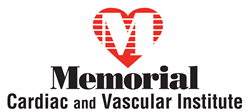
With extraordinary medical expertise, advanced technology and exacting quality guidelines, Memorial Cardiac & Vascular Institute offers a superior level of cardiovascular care.
“The knowledge calcium scoring provides is something that will change the management of the patient both from the patient’s perspective and the physician’s perspective.” – Dr. Wayne Pollak
HOLLYWOOD, Fla. (PRWEB)
June 15, 2022
With heart disease causing one in every four deaths among American adults, it’s critical to know how healthy your heart is. Fortunately, there is a quick and simple way to get a detailed look inside with a specialized heart scan known as a coronary calcium scoring CT scan.
The non-invasive procedure takes a series of X-ray images of the heart, looking for plaque inside the arteries. This makes it an excellent option for many patients to determine their risk of serious problems.
Scans are particularly useful for people who don’t necessarily have any heart-related symptoms, but who may be at increased risk for heart disease or other conditions. The higher the score, the more likely it is that arteries carrying blood have become at least partially blocked. “That knowledge is something that will change the management of the patient both from the patient’s perspective and the physician’s perspective,” said Wayne Pollak, MD, a cardiologist at Memorial Cardiac and Vascular Institute.
The scan looks in the heart’s arteries for plaque, which is made up of materials like cholesterol, fats and calcium. Once plaque is present, it can begin building up over time. This narrows the size of the artery’s opening and restricts blood flow. Restricted blood flow to the heart can cause blockages that put a patient at greater risk of severe issues, including heart disease or a heart attack.
In addition to restricting blood flow, plaque deposits can break open and form a clot, according to the Centers for Disease Control and Prevention (CDC). These clots can cause heart attacks, which happen in more than 800,000 Americans every year.
Getting a calcium score detects these plaque build ups early, before they get worse. The earlier these buildups are detected, the sooner doctors can prescribe medications or suggest lifestyle changes that may decrease the risk of heart problems down the line.
Scans are most useful for those with an increased risk of heart disease or diabetes but do involve radiation and require a prescription. Some of the factors considered in determining risk include a family history of heart disease, age, diabetes, cholesterol levels, blood pressure levels, and lifestyle habits.
To learn more and/or make an appointment with Memorial, visit https://www.mhs.net/services/cardiac-vascular/services/heart-scan or call 954-276-5500.
The Memorial Cardiac & Vascular Institute is a cardiovascular care leader, offering a wide array of services dedicated to the prevention, detection, and treatment of cardiovascular disease. Its multi-disciplinary specialists collaborate using sophisticated diagnostic equipment and facilities. Cardiovascular care outcomes are regularly reviewed by physician-review panels and nurses to ensure quality assurance that utilizes computerized data collection.
With extraordinary medical expertise, advanced technology and exacting quality guidelines, Memorial Cardiac & Vascular Institute offers a superior level of cardiovascular care. For more information on total heart care, visit http://www.memorialcardiac.com.
Share article on social media or email:

